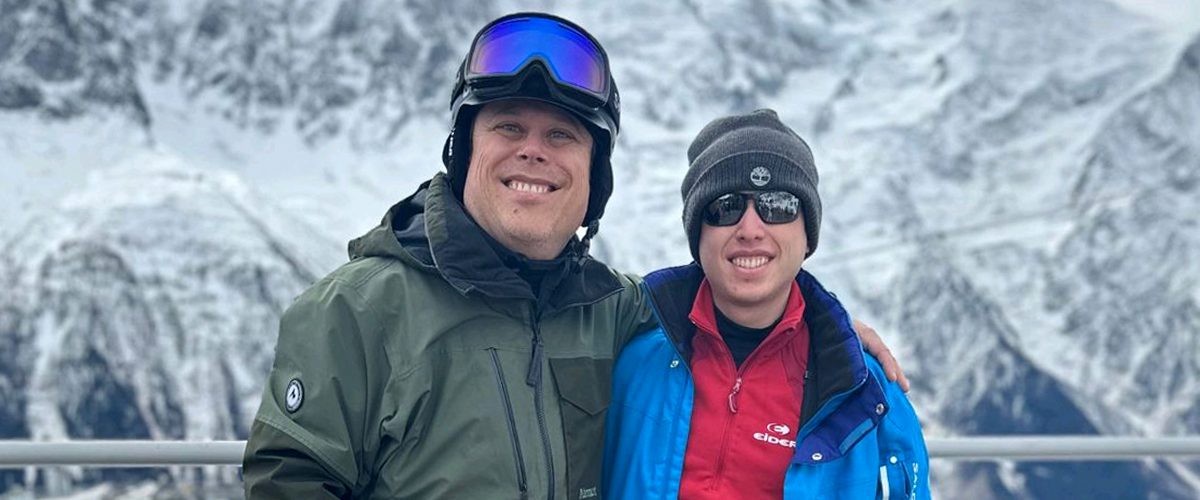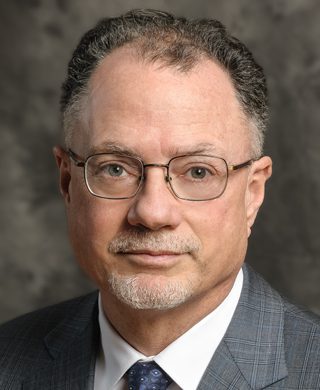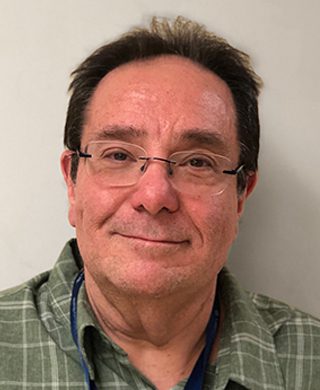- Joined
- Jun 8, 2008
- Messages
- 56,365
I found this article to be poignant and profound so sharing it here

 www.nytimes.com
www.nytimes.com
"
My Transplanted Heart and I Will Die Soon
April 18, 2023
By Amy Silverstein
Ms. Silverstein is the author of “Sick Girl” and “My Glory Was I Had Such Friends.”
Today, I will explain to my healthy transplanted heart why, in what may be a matter of days or weeks at best, she — well, we — will die.
I slide my hand across my chest and speak aloud, palm to my heart’s crisp beating. “I’m so sorry, sweet girl.” She is not used to hearing me this way, outside my head, beyond the body we share. Up until now, the understanding between us has been internal. Like on our daily runs, when my ’70s yacht rock playlist propels each stride; this heart from a 13-year-old donor revolts in my body with thumps of Oh puh-lease — and we giggle together, picking up our pace to sprinting.
“She was an athlete,” the doctor told me after a surgeon removed my failing heart (the first transplanted one — yes, I’ve had two) and sewed this second beauty beneath my breastbone. Three weeks later, at my high school track I began the trial-and-error process of figuring out how to defy the uncomfortable staccato of her adrenaline-fueled pulse — a consequence of the permanently severed nerves that cannot regrow to full electrical function inside a recipient’s chest. The idea to run with my new donor heart stemmed from the lessons of my previous one that taught me the importance of mastering maximum heart rate sensations early on.
My 35 years living with two different donor hearts (I was 25 at the time of the first transplant) — finishing law school, getting married, becoming a mother and writing two books — has felt like a quest to outlast a limited life expectancy. With compulsive compliance, I adhered to the strictest interpretation of transplant protocols. I honored my gifts of life with self-discipline: not one pat of butter; not one sip of alcohol; running mile after mile hoping to stave off vasculopathy, an insidious artery disease that often besets transplanted hearts within about 10 years.
I carried my own detailed medical notes in and out of every doctor’s appointment trying to strategize, along with my doctor’s input, to head off serious issues at the earliest opportunity. I gave my all to sustaining my donor hearts despite daunting odds, and the hearts rewarded me with extraordinary years. I have been so lucky.
But now I lower my chin and whisper the words malignant … metastatic … lungs … terminal. It is the end of the road for my heart and me — not because we didn’t achieve and maintain sparkling cardiac health. But because the sorry state of transplant medicine took us down.
Dig deeper into the moment.
Special offer: Subscribe for $1 a week for the first year.
Organ transplantation is mired in stagnant science and antiquated, imprecise medicine that fails patients and organ donors. And I understand the irony of an incredibly successful and fortunate two-time heart transplant recipient making this case, but my longevity also provides me with a unique vantage point. Standing on the edge of death now, I feel compelled to use my experience in the transplant trenches to illuminate and challenge the status quo.
Over the last almost four decades a toxic triad of immunosuppressive medicines — calcineurin inhibitors, antimetabolites, steroids — has remained essentially the same with limited exceptions. These transplant drugs (which must be taken once or twice daily for life, since rejection is an ongoing risk and the immune system will always regard a donor organ as a foreign invader) cause secondary diseases and dangerous conditions, including diabetes, uncontrollable high blood pressure, kidney damage and failure, serious infections and cancers. The negative impact on recipients is not offset by effectiveness: the current transplant medicine regimen does not work well over time to protect donor organs from immune attack and destruction.
My first donor heart died of transplant medicines’ inadequate protection of the donor heart from rejection; my second will die most likely from their stymied immune effects that give free rein to cancer.
Transplantation is no different from lifelong illnesses that need newer, safer, more effective medicines. Improvements in drug regimens are needed for lupus, Parkinson’s and a host of others. The key difference is that only in transplantation are patients expected to see their disease state as a “miracle.” Only in transplant is there pressure to accept what you’ve been given and not dare express a wish, let alone a demand, for a healthier or longer life.
The side effects of transplant immunosuppression can be sickening day to day, as my small posse of stalwart organ recipient girlfriends knows well; we talk about the vomit bags stashed in our purses, the antacid tablets we tuck into our front pockets for quick-nibble access at a cocktail party or when giving a presentation at work. We’ve encouraged one another to be inventive and keep finding little fixes or at least ameliorations.
Yet over time, each of us tolerate significant challenges and damage, the kind that prompt us to call late at night in tears, reeling from the intractable infections that land us in emergency rooms and hospital beds, the biopsies that pluck pieces of our donor organs leaving us scarred and shaken, the skin cancers that blossom rapidly beside an eyelid or ear. We’ve learned that there can be no clearing every single cancer cell with a suppressed immune system; we will get cut again, and again and again.
But with rattled resolve, we push one another to squeeze laughter out of our common experiences, recounting in mimicking tones all the doctors and all the ways they’ve said to us: “You have taken too much of those medicines for too long. Things are bound to go sideways.”
Too much for too long.
I’ve had the opportunity to sit in on a few closed-door meetings of professional transplant organizations where physicians speak about the problem openly, if briefly, in a safe space for voicing regret and frustration. They admit with shrugged shoulders that after the first five years post-transplant, they don’t know how much immunosuppressive medicine will keep a transplanted organ protected and a recipient’s body safe from harm.
“These 40-year-old medicines have had their day,” the doctor at the head of a virtual conference table professed. “They’re insufficient to prevent cellular and antibody-mediated rejection long term, and if by chance they do, their effects become deadly. I’m talking malignancies.” His colleagues lowered their eyes and sighed.
And yet there is criticism and even vitriol waiting for transplant recipients who express discontent with the status quo. In 2007, in response to my memoir, “Sick Girl,” where I described my full range of emotions after my first heart transplant, I received hostile letters and barbed online comments: Stop complaining … shut up and take your medicine … the doctors should have let you die.
Because a transplant begins with the overwhelming gift of a donor organ that brings you back from the brink of death, the entirety of a patient’s experience from that day forward is cast as a “miracle.” And who doesn’t love a good miracle story? But this narrative discourages transplant recipients from talking freely about the real problems we face and the compromising and life-threatening side effects of the medicines we must take.
This “gratitude paradox,” as I’ve come to think of it, can manifest itself throughout the transplant professional communities as well. Without vigorous pushback, hospitals and physicians have been allowed to set an embarrassingly low bar for achievement. Indeed, the prevailing metric for success as codified by the Health Resources and Services Administration is only one year of post-transplant survival, which relieves pressure for improvement.
And with a muted patient cohort, it has been way too easy for federal, state and nonprofit funding sources to overlook transplantation. Compare this with the influence and substantial research funding generated by engaged parents advocating fiercely on behalf of Type 1 diabetes patients — a worthy cause but one whose absolute number of new patients each year is not that different than that of organ transplant recipients. Perhaps this is why life expectancy after heart transplantation is little changed compared to when I received a heart in 1988.
I am hopeful that with the Senate Finance Committee revealing improprieties, mishandling and wastefulness of donated organs by the Organ Procurement and Transplantation Network/United Network for Organ Sharing, a similar light will be shone on the state of transplant medicine so that positive change can finally begin. For now, though, deeply entrenched problems remain, and the most ungrateful thing I could do would be to stay silent in my remaining days.
I am speaking out while I still can for my magnificent hearts.
And for the patients who have called me or written from their post-transplant deathbeds, dismayed, “I did my best, I took every pill, every day. …”
I am speaking for the organ donor families I’ve met, one mother in particular whom I watched rub the mid-back of a man who’d received her daughter’s kidney; she mashed her body against the place where her girl might still reside. She called me two years later, sobbing, because this kidney recipient had died, as had the patients who had received the liver and lungs.
I am speaking for my transplant cardiologist, the finest physician I have ever known, who sat across from me last month and cried into his palms when he told me I had incurable cancer.
I sat quietly for a moment before replying. “I sacrificed my whole body for this beautiful heart,” I said. “But there’s a victory here, too. I kept her perfect to the end.”
My doctor and I were grateful.
We were horrified.
A true heart transplant goodbye.
"
Amy Silverstein is the author of “Sick Girl” and “My Glory Was I Had Such Friends.”

Opinion | My Transplanted Heart and I Will Die Soon
Organ transplantation is mired in stagnant science and antiquated, imprecise medicine that fails patients and organ donors.
"
My Transplanted Heart and I Will Die Soon
April 18, 2023
By Amy Silverstein
Ms. Silverstein is the author of “Sick Girl” and “My Glory Was I Had Such Friends.”
Today, I will explain to my healthy transplanted heart why, in what may be a matter of days or weeks at best, she — well, we — will die.
I slide my hand across my chest and speak aloud, palm to my heart’s crisp beating. “I’m so sorry, sweet girl.” She is not used to hearing me this way, outside my head, beyond the body we share. Up until now, the understanding between us has been internal. Like on our daily runs, when my ’70s yacht rock playlist propels each stride; this heart from a 13-year-old donor revolts in my body with thumps of Oh puh-lease — and we giggle together, picking up our pace to sprinting.
“She was an athlete,” the doctor told me after a surgeon removed my failing heart (the first transplanted one — yes, I’ve had two) and sewed this second beauty beneath my breastbone. Three weeks later, at my high school track I began the trial-and-error process of figuring out how to defy the uncomfortable staccato of her adrenaline-fueled pulse — a consequence of the permanently severed nerves that cannot regrow to full electrical function inside a recipient’s chest. The idea to run with my new donor heart stemmed from the lessons of my previous one that taught me the importance of mastering maximum heart rate sensations early on.
My 35 years living with two different donor hearts (I was 25 at the time of the first transplant) — finishing law school, getting married, becoming a mother and writing two books — has felt like a quest to outlast a limited life expectancy. With compulsive compliance, I adhered to the strictest interpretation of transplant protocols. I honored my gifts of life with self-discipline: not one pat of butter; not one sip of alcohol; running mile after mile hoping to stave off vasculopathy, an insidious artery disease that often besets transplanted hearts within about 10 years.
I carried my own detailed medical notes in and out of every doctor’s appointment trying to strategize, along with my doctor’s input, to head off serious issues at the earliest opportunity. I gave my all to sustaining my donor hearts despite daunting odds, and the hearts rewarded me with extraordinary years. I have been so lucky.
But now I lower my chin and whisper the words malignant … metastatic … lungs … terminal. It is the end of the road for my heart and me — not because we didn’t achieve and maintain sparkling cardiac health. But because the sorry state of transplant medicine took us down.
Dig deeper into the moment.
Special offer: Subscribe for $1 a week for the first year.
Organ transplantation is mired in stagnant science and antiquated, imprecise medicine that fails patients and organ donors. And I understand the irony of an incredibly successful and fortunate two-time heart transplant recipient making this case, but my longevity also provides me with a unique vantage point. Standing on the edge of death now, I feel compelled to use my experience in the transplant trenches to illuminate and challenge the status quo.
Over the last almost four decades a toxic triad of immunosuppressive medicines — calcineurin inhibitors, antimetabolites, steroids — has remained essentially the same with limited exceptions. These transplant drugs (which must be taken once or twice daily for life, since rejection is an ongoing risk and the immune system will always regard a donor organ as a foreign invader) cause secondary diseases and dangerous conditions, including diabetes, uncontrollable high blood pressure, kidney damage and failure, serious infections and cancers. The negative impact on recipients is not offset by effectiveness: the current transplant medicine regimen does not work well over time to protect donor organs from immune attack and destruction.
My first donor heart died of transplant medicines’ inadequate protection of the donor heart from rejection; my second will die most likely from their stymied immune effects that give free rein to cancer.
Transplantation is no different from lifelong illnesses that need newer, safer, more effective medicines. Improvements in drug regimens are needed for lupus, Parkinson’s and a host of others. The key difference is that only in transplantation are patients expected to see their disease state as a “miracle.” Only in transplant is there pressure to accept what you’ve been given and not dare express a wish, let alone a demand, for a healthier or longer life.
The side effects of transplant immunosuppression can be sickening day to day, as my small posse of stalwart organ recipient girlfriends knows well; we talk about the vomit bags stashed in our purses, the antacid tablets we tuck into our front pockets for quick-nibble access at a cocktail party or when giving a presentation at work. We’ve encouraged one another to be inventive and keep finding little fixes or at least ameliorations.
Yet over time, each of us tolerate significant challenges and damage, the kind that prompt us to call late at night in tears, reeling from the intractable infections that land us in emergency rooms and hospital beds, the biopsies that pluck pieces of our donor organs leaving us scarred and shaken, the skin cancers that blossom rapidly beside an eyelid or ear. We’ve learned that there can be no clearing every single cancer cell with a suppressed immune system; we will get cut again, and again and again.
But with rattled resolve, we push one another to squeeze laughter out of our common experiences, recounting in mimicking tones all the doctors and all the ways they’ve said to us: “You have taken too much of those medicines for too long. Things are bound to go sideways.”
Too much for too long.
I’ve had the opportunity to sit in on a few closed-door meetings of professional transplant organizations where physicians speak about the problem openly, if briefly, in a safe space for voicing regret and frustration. They admit with shrugged shoulders that after the first five years post-transplant, they don’t know how much immunosuppressive medicine will keep a transplanted organ protected and a recipient’s body safe from harm.
“These 40-year-old medicines have had their day,” the doctor at the head of a virtual conference table professed. “They’re insufficient to prevent cellular and antibody-mediated rejection long term, and if by chance they do, their effects become deadly. I’m talking malignancies.” His colleagues lowered their eyes and sighed.
And yet there is criticism and even vitriol waiting for transplant recipients who express discontent with the status quo. In 2007, in response to my memoir, “Sick Girl,” where I described my full range of emotions after my first heart transplant, I received hostile letters and barbed online comments: Stop complaining … shut up and take your medicine … the doctors should have let you die.
Because a transplant begins with the overwhelming gift of a donor organ that brings you back from the brink of death, the entirety of a patient’s experience from that day forward is cast as a “miracle.” And who doesn’t love a good miracle story? But this narrative discourages transplant recipients from talking freely about the real problems we face and the compromising and life-threatening side effects of the medicines we must take.
This “gratitude paradox,” as I’ve come to think of it, can manifest itself throughout the transplant professional communities as well. Without vigorous pushback, hospitals and physicians have been allowed to set an embarrassingly low bar for achievement. Indeed, the prevailing metric for success as codified by the Health Resources and Services Administration is only one year of post-transplant survival, which relieves pressure for improvement.
And with a muted patient cohort, it has been way too easy for federal, state and nonprofit funding sources to overlook transplantation. Compare this with the influence and substantial research funding generated by engaged parents advocating fiercely on behalf of Type 1 diabetes patients — a worthy cause but one whose absolute number of new patients each year is not that different than that of organ transplant recipients. Perhaps this is why life expectancy after heart transplantation is little changed compared to when I received a heart in 1988.
I am hopeful that with the Senate Finance Committee revealing improprieties, mishandling and wastefulness of donated organs by the Organ Procurement and Transplantation Network/United Network for Organ Sharing, a similar light will be shone on the state of transplant medicine so that positive change can finally begin. For now, though, deeply entrenched problems remain, and the most ungrateful thing I could do would be to stay silent in my remaining days.
I am speaking out while I still can for my magnificent hearts.
And for the patients who have called me or written from their post-transplant deathbeds, dismayed, “I did my best, I took every pill, every day. …”
I am speaking for the organ donor families I’ve met, one mother in particular whom I watched rub the mid-back of a man who’d received her daughter’s kidney; she mashed her body against the place where her girl might still reside. She called me two years later, sobbing, because this kidney recipient had died, as had the patients who had received the liver and lungs.
I am speaking for my transplant cardiologist, the finest physician I have ever known, who sat across from me last month and cried into his palms when he told me I had incurable cancer.
I sat quietly for a moment before replying. “I sacrificed my whole body for this beautiful heart,” I said. “But there’s a victory here, too. I kept her perfect to the end.”
My doctor and I were grateful.
We were horrified.
A true heart transplant goodbye.
"
Amy Silverstein is the author of “Sick Girl” and “My Glory Was I Had Such Friends.”






300x240.png)